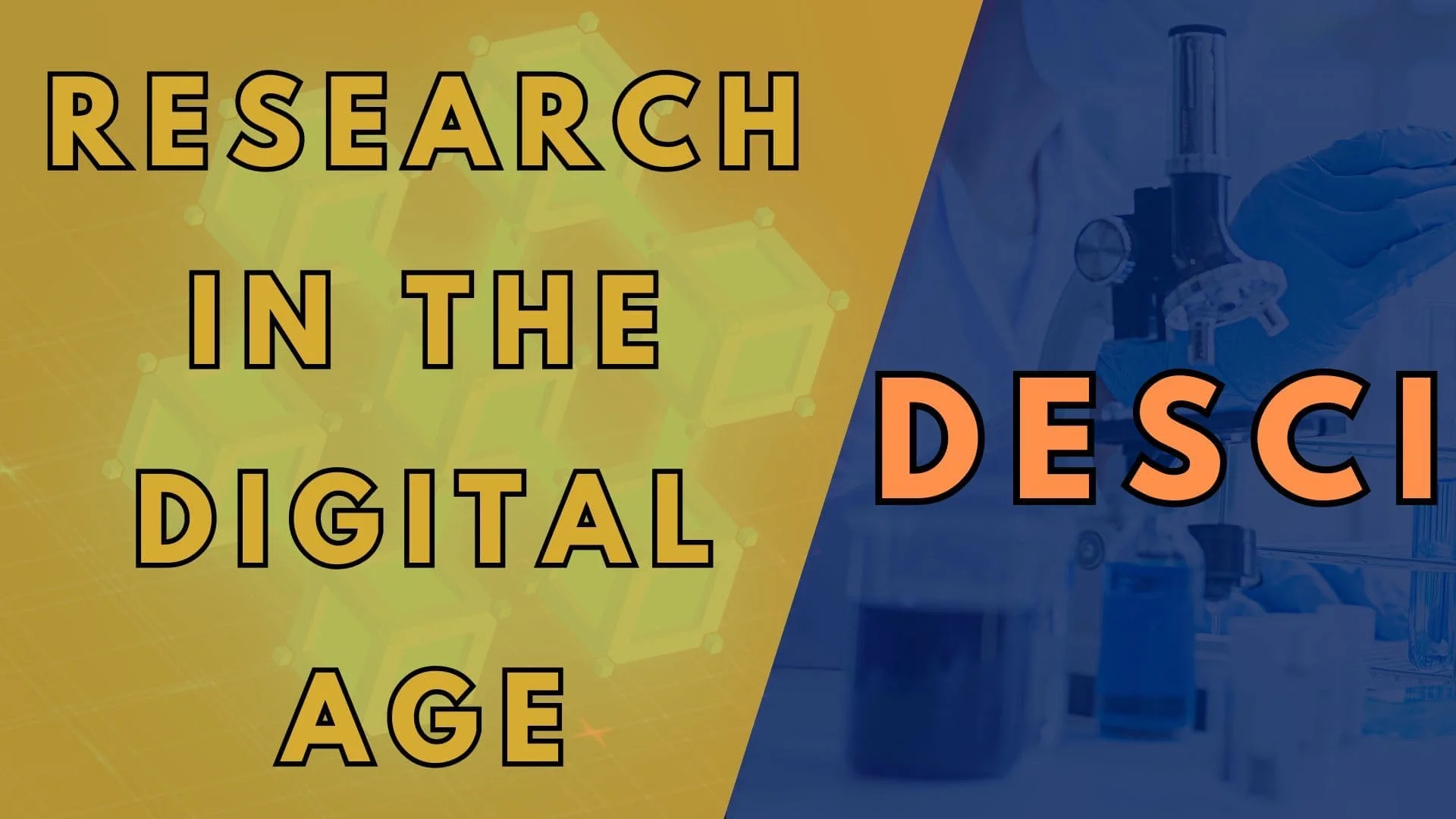Decentralized Science (DeSci): Revolutionizing Research in the Digital Age
In recent years, the scientific community has witnessed a paradigm shift in how research is conducted and disseminated. Traditional scientific methods have often been criticized for their hierarchical structures, bureaucratic processes, and lack of transparency. In response to these limitations, a new approach known as Decentralized Science (DeSci) has emerged, aiming to democratize the scientific process and foster collaboration on a global scale.

Posted on 20 Mar 2024
Understanding Decentralized Science
At its core, Decentralized Science (DeSci) refers to a framework where scientific research is conducted, validated, and disseminated in a decentralized manner, leveraging blockchain technology and decentralized networks. Unlike traditional scientific institutions, which are often centralized and hierarchically organized, DeSci promotes a more inclusive and transparent approach to knowledge creation.
Key Principles of DeSci
- Transparency: One of the fundamental principles of DeSci is transparency. All research processes, including data collection, analysis, and publication, are conducted openly, allowing for greater scrutiny and reproducibility. By leveraging blockchain technology, researchers can ensure that data and findings are immutable and tamper-proof, thus enhancing trust in the scientific process.
- Collaboration: DeSci encourages collaboration among researchers from diverse backgrounds and geographical locations. Decentralized networks provide a platform for scientists to collaborate in real-time, facilitating the exchange of ideas and expertise without the constraints of traditional institutions.
- Incentive Structures: In traditional academia, researchers are often incentivized by factors such as publication metrics and grant funding. DeSci seeks to redefine these incentive structures by rewarding contributions to the scientific community, such as peer review, data sharing, and open access publishing. Through token economies and decentralized governance mechanisms, DeSci aims to create a more equitable and sustainable research ecosystem.
- Accessibility: By eliminating barriers to access, such as subscription fees and paywalls, DeSci promotes the democratization of knowledge. Research findings are freely available to anyone with an internet connection, enabling broader participation and engagement with scientific research.
Applications of DeSci
- Open Access Publishing: DeSci platforms enable researchers to publish their work in open access journals, ensuring that knowledge is freely available to the public. This approach enhances the visibility and impact of research while promoting greater equity in access to scientific knowledge.
- Data Sharing and Collaboration: DeSci facilitates the sharing of research data and resources among scientists, fostering collaboration and innovation across disciplines. Decentralized networks provide a secure and transparent platform for storing and exchanging data, enabling researchers to work together on complex problems.
- Peer Review and Quality Assurance: In the decentralized science ecosystem, peer review is conducted openly and transparently, allowing for greater accountability and quality assurance. By crowdsourcing peer review and feedback, DeSci ensures that research findings are rigorously evaluated before publication.
- Scientific Funding and Governance: DeSci platforms leverage decentralized governance mechanisms, such as token economies and DAOs (Decentralized Autonomous Organizations), to allocate funding and make decisions about research priorities. This approach enables greater community involvement in shaping the direction of scientific research.
Challenges and Future Directions
While DeSci holds great promise for transforming the scientific landscape, it also faces several challenges. These include scalability issues, regulatory hurdles, and the need for cultural change within the scientific community. Moving forward, addressing these challenges will require collaboration among researchers, policymakers, and technologists to realize the full potential of decentralized science.
Conclusion:
Decentralized Science (DeSci) represents a bold vision for the future of scientific research. By embracing principles of transparency, collaboration, and accessibility, DeSci has the potential to revolutionize the way knowledge is created and shared in the digital age. As the DeSci movement continues to gain momentum, it is poised to shape the future of science for generations to come.





